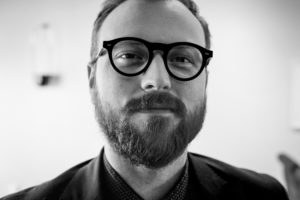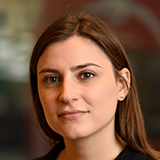As a new year emerges, YFile takes a look back on 2019 to share with readers a snapshot of the year’s highlights. “Year in Review” will run as a four-part series and will feature a random selection of top news stories published in YFile. Here are the stories and highlights for April to June 2019, as chosen by YFile editors.
April

Professor Hédi Bouraoui invested as a member of the Order of Canada
Professor Hédi Bouraoui, York University’s writer in residence, was formally invested as a member of the Order of Canada during a ceremony at Rideau Hall in Ottawa on March 14. Bouraoui was recognized for his tremendous body of work and tireless advocacy for French-language literature.
York professor, students earn awards for leading trauma research
York University psychology Professor Robert T. Muller and three students in the Trauma & Attachment Lab were recognized at the 36th annual meeting of the International Society for the Study of Trauma & Dissociation (ISSTD) with two distinct awards for their work in trauma research.
York University chemists invent new Lewis acidity test using fluorescence
York University chemists have invented a new fluorescence-based method for accurately determining the strength of a range of Lewis acids, which could one day be used to help purify pharmaceutical drugs, improve industrial processes and explore next-generation technologies, according to a new study.
York University announces nine York Research Chair appointments
Nine emerging and established researchers across the University joined the York Research Chairs (YRC) program, York University’s internal counterpart to the national Canada Research Chairs (CRC) program, which recognizes outstanding researchers. The appointed YRCs belong to the sixth cohort of researchers to be appointed since the establishment of the program in 2015.
May
Researchers win $1.89M grant to search for AI solution to infant pain assessment
A team of York University researchers led by psychology Professor Rebecca Pillai Riddell, associate vice-president research and the director of the Opportunities to Understand Childhood Hurt (O.U.C.H.) Lab, was awarded a $1.5-million grant to study preterm infants’ subjective experiences of pain, despite their inability to speak.
York researchers to lead five-year project addressing youth and teen dating violence
Professor Sara Flicker, Faculty of Environmental Studies, and Professor Jen Gilbert, Faculty of Education, received $954,220 over five years to support a project aimed at preventing teen dating violence by teaching new skills with a focus on increasing awareness and understanding of healthy relationships.
Five York grad students receive prestigious Vanier Scholarships
Five PhD students from York University have been named Vanier Scholars and will receive support from the Government of Canada to pursue their cutting-edge research. Valued at $50,000 per year for three years during doctoral studies, the 2019 Vanier Graduate Scholarship is awarded to graduate students who demonstrate leadership skills and a high standard of scholarly achievement in the social sciences and/or humanities, natural sciences and/or engineering, and health.

Rare songbird makes migration pit stop at York’s Keele Campus
Billions of tiny songbirds, some weighing as little as two loonies, undertook an arduous journey this past spring. These birds left their wintering grounds in the tropics and raced thousands of kilometres to their Canadian breeding grounds. Some, including rare species, stopped at York University’s woodlots.
June
York’s Merv Mosher recognized for decades-long contribution to volleyball
Merv Mosher was inducted into the Ontario Volleyball Hall of Fame on June 1. A long-serving faculty member in York University’s Faculty of Health, School of Kinesiology & Health Science, Mosher received recognition as one of the leading volleyball coaches in Canadian history.
York PhD candidate breaking down taboos surrounding sexuality after spinal cord injury
Changing lives for the better is a core focus for Jacqueline Kathnelson, a fourth-year PhD student in Kinesiology and Health Sciences. Kathnelson is researching the psychosocial needs associated with men’s sexuality following spinal cord injury.

President’s Staff Recognition Awards shine light on exceptional York employees
More than 150 members of the York University community gathered on June 5 to celebrate some of the University’s most dedicated, hard-working and enthusiastic staff members during the annual President’s Staff Recognition Awards.
2019 President’s University-Wide Teaching Award recipients celebrated during convocation
Four York University faculty members who have significantly enhanced the quality of learning and have demonstrated innovation in teaching were recognized during the 2019 Spring Convocation ceremonies with a President’s University-Wide Teaching Award: Professors Russ Patrick Alcedo, Nicolette Richardson, Alistair Mapp and teaching assistant Mohamed Abdelhamid.
Check back in the next edition of YFile for Year in Review 2019: Top headlines at York University, July to September.

























